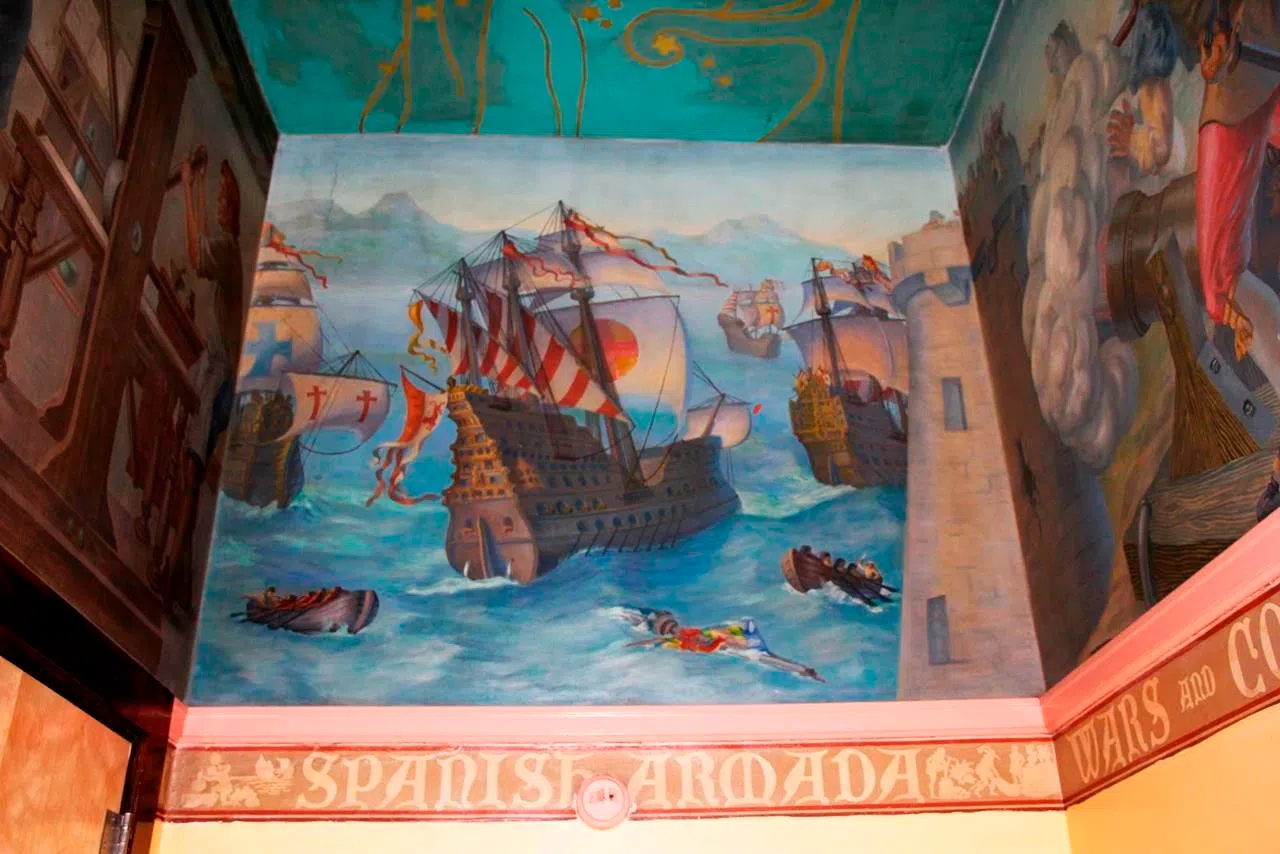
New Deal art experts say painting over mural was vandalism
NEW YORK — A mural of constellations in the night sky adorned a third-floor ceiling at DeWitt Clinton High School for more than 75 years, one of thousands of artworks in New York City and around the country supported by New Deal programs to employ artists and beautify public spaces.
But Scorpio, Taurus and the rest are now hidden under bright blue paint, slathered on during a repair project, and preservationists say the painting-over of the mural “Constellations” by German-born artist Alfred Floegel was a travesty.
“That was an amazing act of vandalism that they had no right to do,” said Gray Brechin, the founder of a project called the Living New Deal that catalogues public works funded by the Franklin Delano Roosevelt administration.
The mural coverup was first reported in the Daily News, which said it happened last November. Doug Cohen, a spokesman for the New York City Department of Education, said the mural was painted over during roof repairs at the 89-year-old Bronx school. He said officials are “exploring ways to restore this historic artwork.”
